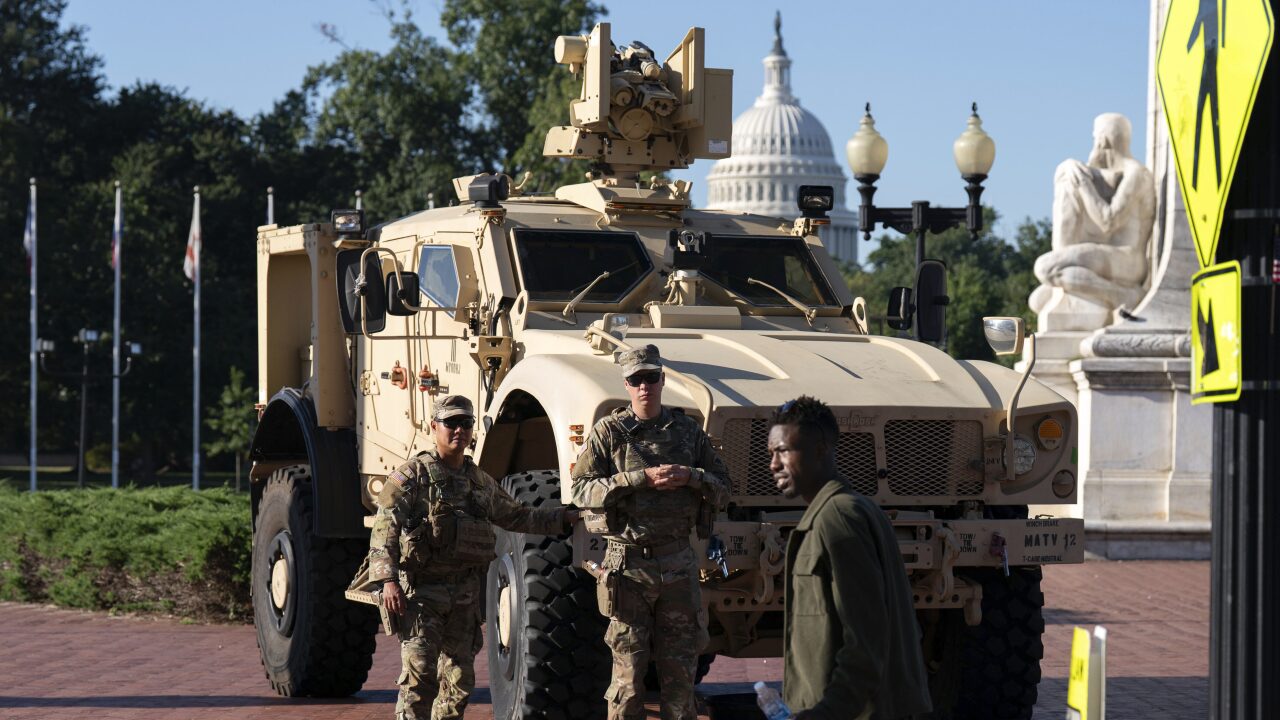A federal judge ruled the Trump administration's use of the California National Guard is illegal, and this decision could have ramifications in other big cities across the country.
Since June, the California National Guard has been under federal control, activated by President Donald Trump. At its height, 4,000 Guard members and 700 Marines were on the ground in southern California.
But Tuesday, Judge Charles Breyer ruled the Trump administration's use of troops in the Los Angeles area violates federal law. His decision centers on the Posse Comitatus Act, which prohibits the military from being used for domestic law enforcement purposes.
"We don't want the military acting as a national police force. So to the extent that the military was doing those things, like setting up perimeters and traffic stops and all of that, it was crossing the line in terms of what it's allowed to do legally," explained George Washington University law professor Laura Dickinson.
RELATED STORY | Trump's use of National Guard during Los Angeles immigration protests is illegal, judge rules
Judge Breyer's opinion notes multiple examples of troops being used for things like crowd and traffic control. He wrote, "The violations were ... the function of systematic and willful orders to troops to execute domestic law."
As of early August, 300 Guard troops are still active in Los Angeles, and the judge said they can remain, but they must not perform law enforcement actions.
"They're allowed to play a supportive role. They're allowed to protect federal property. That is something that the military has done in other circumstances, and [they are] allowed to play a protective role with respect to enforcement of federal laws by federal officials. But they have to be really careful not to actually engage in law enforcement and really stay in the background," said Dickinson.
President Trump has also activated the National Guard in Washington D.C., but his control in the nation's capital is different. In the states, the National Guard is under the control of the governor. There is no governor for Washington, D.C., so the president fill that role.
"The Posse Comitatus Act, that law that was the basis of the decision [Tuesday] in L.A., does not apply to what is going on in D.C. And also, the President has much more authority to use the military in DC."
Pres. Trump has threatened to send military forces into other major cities. Tuesday morning on Truth Social, the president wrote, "I will solve the crime problem fast, just like I did in DC. Chicago will be safe again, and soon." In the afternoon, he said he will intervene in Chicago and Baltimore, saying he has "obligation to protect this country." But the president didn't include a timeline on action for either city.
The ruling from Judge Breyer is limited to California, so it can't stop the president from federalizing the National Guard in other states. But the reasoning in Breyer's order could be applied by federal judges in other jurisdictions. And beyond the ruling itself, Dickinson said the case did expose some risks.
"What this case shows is how risky it is for the military itself to be deployed in this way. And some of the documents that came out in the litigation show this because it's putting the military in a situation that's very volatile in a way that is not something that they've historically been used for, that they're not well trained for, and so they're at risk of liability - legal liability."
Breyer put his ruling on pause until noon on September 12, allowing time for the Trump administration to appeal, and appeals in this case could land the issues in front of the Supreme Court.





